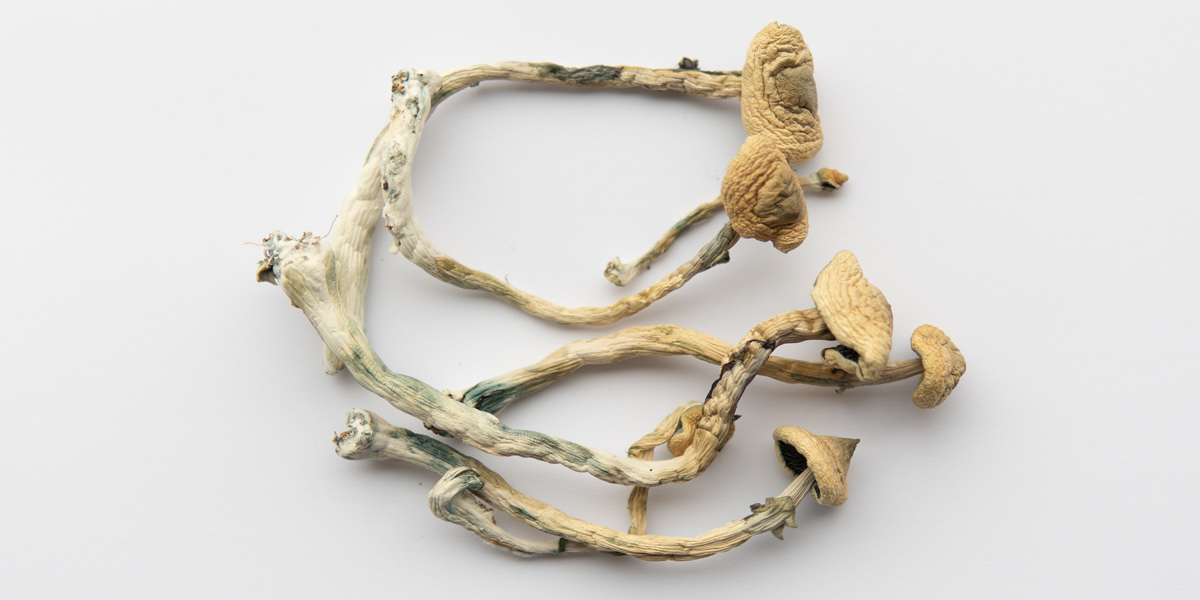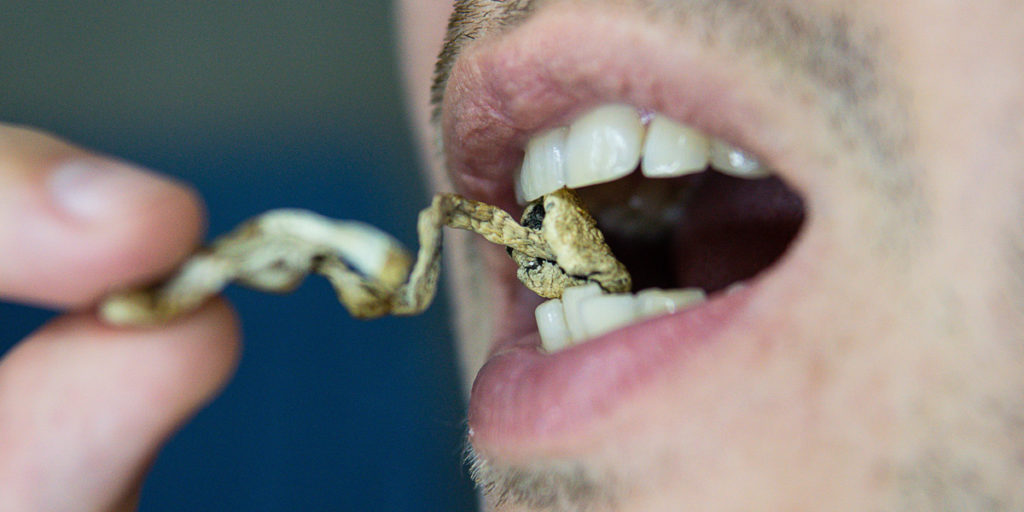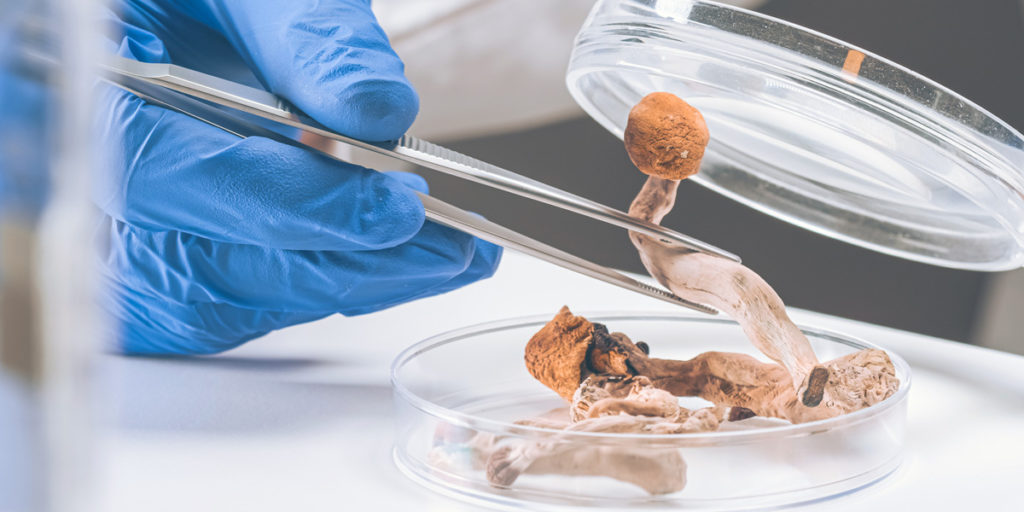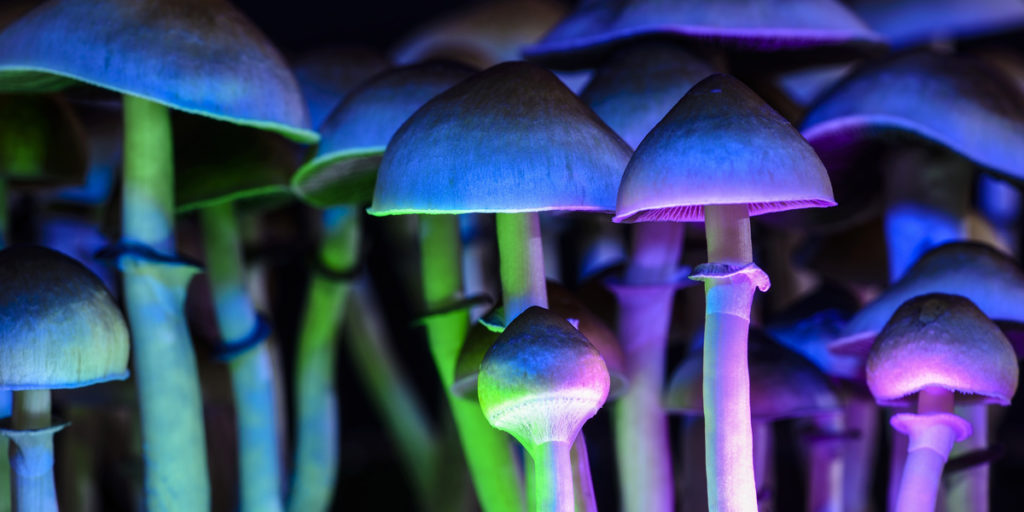Psilocybin (Magic Mushrooms): Uses, Effects, Risks, and How to Get Help

What Is Psilocybin (Magic Mushrooms)?
Psilocybin and psilocin are naturally occurring chemicals found in 200 species of hallucinogenic mushrooms that grow in Mexico, Central America, South America, and particular regions of the United States. Psilocybin-containing mushrooms, or magic mushrooms, are comparable to LSD, peyote, and mescaline, abused for its euphoric and psychedelic effects called a “trip.”
In 1970, psilocybin and other hallucinogenic drugs were classified as Schedule I drugs under the Controlled Substances Act because they had a high potential for abuse with no accepted medical use. However, research suggests that small doses of psilocybin have therapeutic benefits as an added component of depression medication and treatment.

Methods of Use
Magic mushrooms are consumed orally— eaten alone, crushed into powder, put in a capsule, baked into edibles, or brewed as a tea.
They can be ingested as fresh or dried mushrooms but are usually dried before consumption and are sometimes mixed with other foods to mask their bitter taste. Dried mushrooms are typically rusty brown with some areas of white.
Liberty Caps are among the most commonly found psilocybin mushroom species for recreational use in North America and Europe. And though in Canada, psychedelic mushrooms consumption is assumed to be limited to only a few experimental exceptions.
With heavy rain sometimes producing an abundance out of season, they have become an integral part of British Colombian culture. People from all societal class structures use the magic mushrooms recreationally or, in some instances, for spiritual experiences.
Medical Use and Clinical Trials
The first clinical research studies on psilocybin involved treating anxiety and depression in cancer patients. It revealed that psilocybin treatment significantly relieved the existential dread in people with a cancer diagnosis. This study’s findings suggested that psilocybin may be effective on a broader group of people who suffer from a major depressive disorder.
A study at John Hopkins University recruited 24 individuals with long-term depression who had been experiencing symptoms persistently to participate in psilocybin therapy consisting of two doses. The study revealed that out of the 24 participants, more than half were no longer qualified as depressed one month after the treatment. Although the study group had slight increases in heart rate and blood pressure after consumption, anxiety decreased, and mood improved for 67% of the group after a week follow-up.
Further studies by Robin Carhart Harris observed the beneficial effects of psilocybin. He explored the decreased brain flow the drug produces and how this response can help treat certain psychiatric disorders. It proved to increase an individual’s feeling of well-being and relieve symptoms of depression and cluster headaches.

Effects of Psilocybin
Psilocybin’s hallucinogenic effects are typically felt within 20 to 90 minutes after ingestion and usually last about 6 hours and up to 12 hours in some cases.
The effects are similar to other psychedelic drugs, causing visual and auditory hallucinations, substantial changes in perception, thinking, and mood. Users see images, feel sensations, and hear sounds that do not exist, causing an inability to distinguish fantasy from reality.
Along with hallucinations, other effects include:
- Loss of appetite
- Dry mouth
- Difficulty sleeping
- Excessive sweating
- Bizarre behaviors
- Intensified feelings
- Changes in perception of time
- Introspective focus
- Feelings of relaxation
- Spiritual experiences
Long Term Effects
Long term effects associated with psilocybin mushroom use involves continuing mental health issues with symptoms including:
- Paranoia
- Disorganized thinking
- Visual disturbances
- Mood changes
Another common enduring effect is flashbacks or the reoccurrence of specific experiences under the drug’s influence, such as hallucinations and other visual disturbances. This condition, called the hallucinogen persisting perception disorder (HPPD), can happen a few days or more than a year after drug use.
Effects on the Body
The common physical effects of psilocybin are nausea, vomiting, confusion, muscle weakness, and lack of coordination. However, other physical side effects may include:
- Cold sweats
- Enlarged pupils
- Diarrhea
- Abdominal cramps
- Dizziness and feeling lightheaded
- Increased heart rate, body temperature, and/or blood pressure

Risks
Cultivated mushrooms vary wildly in psilocybin content, indicating doses are uncontrolled in illicit use. Studies of “street samples” have revealed a difference in psilocybin content by ten times.
Large doses of magic mushrooms can cause an intense psychedelic experience, referred to as a bad trip, involving panic attacks, paranoia, psychosis, and scary visuals.
Additionally, abuse can lead to a life-threatening situation if a variety of poisonous mushrooms is mistakenly identified as psilocybin mushrooms.
Getting Help
Although psychedelic mushrooms cannot usually form a physical or mental dependency because the reinforcing effects of the drug are low, they can be abused. Some users can seem detached from reality even after drug use, indicating possible mental health issues from long-term use.
If you suspect that you or a loved one may have a problem with psilocybin mushroom abuse, Northridge Addiction Treatment Center is available for a free and confidential consultation.
At NATC, our dual diagnosis program aids in diagnosing mental health disorders that are sometimes the fuel for addictions. Our addiction specialists create individualized treatment plans to address co-occurring conditions.
NATC’s integrated treatment programs can be your first step to peace. Call today to speak with a compassionate admissions specialist.
Find Meaningful Recovery
Our caring and compassionate specialists are eager to help you comfortably navigate this journey to recovery. Our individualized treatment plan, programs, and therapies may be a perfect match for you or your loved one. Let us assist you in living the happy life you deserve. It starts with a phone call.




